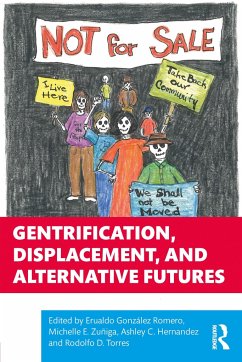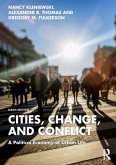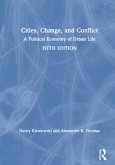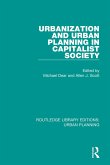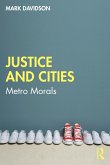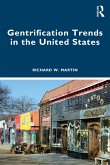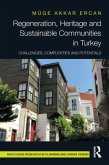Gentrification is one of the most debilitating-and least understood-issues in American cities today. Scholars and community activists adjoin in Gentrification, Displacement, and Alternative Futures to engage directly and critically with the issue of gentrification and to address its impacts on marginalized, materially exploited, and displaced communities.
Authors in this collection begin to unpack and explore the forces that underlie these significant changes in an area's social character and spatial landscape. Central in their analyses is an emphasis on racial formations and class relations, as they each look to find the essence of the urban condition through processes of demographic change, economic restructuring, and gentrification. Their original findings locate gentrification within a carefully integrated theoretical and political framework and challenge readers to look critically at the present and future of gentrification studies.
Gentrification, Displacement, and Alternative Futures is a vital read for scholars and researchers, as well as planners and organizers hoping to understand the contemporary changes happening in our urban areas.
Authors in this collection begin to unpack and explore the forces that underlie these significant changes in an area's social character and spatial landscape. Central in their analyses is an emphasis on racial formations and class relations, as they each look to find the essence of the urban condition through processes of demographic change, economic restructuring, and gentrification. Their original findings locate gentrification within a carefully integrated theoretical and political framework and challenge readers to look critically at the present and future of gentrification studies.
Gentrification, Displacement, and Alternative Futures is a vital read for scholars and researchers, as well as planners and organizers hoping to understand the contemporary changes happening in our urban areas.
This exciting, fresh, and timely collection Gentrification, Displacement, and Alternative Futures discusses the enduring and yet changing relationship between race and class with respect to processes of gentrification and offers a welcome and distinctive Latina/o/x consideration. A key focus is the necessary confrontation between neoliberalism and racialized mobilization in resisting market and state driven gentrification. This is a book that will add much to gentrification debates and that scholars and activists alike should buy!
Loretta Lees, University of Leicester
What does it mean to place the study of gentrification, as a necessarily racialized process of displacement and dispossession, at the very heart of critical urban theory? Here is a bold volume that does precisely this, drawing attention to the many modes of gentrification from cultural place-making to art washing to transit-oriented development. Refusing the inevitability of such spatial restructuring, the authors root their research and analysis in communities that imagine, demand, and create alternative futures.
Ananya Roy, University of California, Los Angeles
Loretta Lees, University of Leicester
What does it mean to place the study of gentrification, as a necessarily racialized process of displacement and dispossession, at the very heart of critical urban theory? Here is a bold volume that does precisely this, drawing attention to the many modes of gentrification from cultural place-making to art washing to transit-oriented development. Refusing the inevitability of such spatial restructuring, the authors root their research and analysis in communities that imagine, demand, and create alternative futures.
Ananya Roy, University of California, Los Angeles

